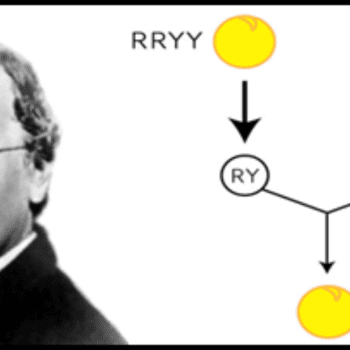
God is immanent, and God is transcendent. That is, God is everywhere, and God is beyond human comprehension. Are these two claims contradictory? Is it possible for God to be present in all things and yet remain beyond human understanding?
In this essay, I will analyze the belief that the God of the Bible is in all things while simultaneously being beyond all understanding. This I will do by first examining each of these two traits of God, transcendence and immanence, independently. Lastly, I will examine whether these two traits can both be present in God or if the one excludes the other.
Transcendence
“For my thoughts are not your thoughts, nor are your ways my ways. For as the heavens are higher than the earth, so are my ways higher than your ways, my thoughts higher than your thoughts.” – Isaiah 55:8.
Without question, our “modern” world differs drastically from ancient times. However, like the ancients, we, too, have gods of our own invention. The golden calf and belief in the gods that ruled the various forces of nature have been replaced by the gods of politics, power, pleasure, and money. In contrast to these “gods,” the God encountered in the Bible is beyond human control or comprehension.
This Judeo-Christian concept of God as entirely strange and other is called transcendence. To speak of God as the transcendent being is to recognize that God is independent and over/above His creation. What makes God transcendent, therefore, is that God exists outside of space and time. This makes God, in principle, beyond the human powers to analyze, define, and classify. Transcendence does raise an epistemological question, however. If God is beyond our capacity to understand, how can we even know God exists?
From a philosophical perspective, three types or modes of transcendence can be identified. Cosmological transcendence implies that God is not the universe but transcends all creation. This claim is counter to pagan and pantheistic worldviews. Epistemological transcendence signifies that God transcends human concepts and language. This claim militates against the common argument that God is a human invention, a product of imagination and language. Finally, ethical transcendence suggests that God is not subject to human laws and ethics but rather is their objective source. Said differently, morality is independent of human constructs.
Immanence
Put succinctly, immanence is that aspect of God whereby He is present in all things.
God’s immanence can be understood (again, in a limited manner) in three ways: by His essence, knowledge, and power. This statement requires some explanation.
There are several ways in which a thing can be considered good. First and foremost, however, a thing is good because it exists. From this, it follows that a thing whose essence is to exist (a necessary being) must be the perfection of goodness. This is what we call God. Because God is goodness itself, a thing is deemed good to the extent it shares in the Divine essence.
God is in all things by virtue of His knowledge. Since God is the efficient cause of the universe, He possesses intimate knowledge of their being. God’s knowledge of human beings is given voice in Psalm 139:1-3. “Lord, you have probed me; you know me: you know when I sit and stand; you understand my thoughts from afar. You sift through my travels and my rest; with all my ways, you are familiar.”
Finally, God is present in all things by grace. Since God is not only the cause of a thing but the power by which that thing remains in existence, God is said to be present in everything that exists by virtue of grace.
Philosophically, Divine immanence suggests a personal God who is entirely independent of His creation while simultaneously being present in every aspect of that creation. As we saw regarding God’s transcendence, this conclusion contradicts the pagan, deist, and pantheistic worldviews.
Having provided a summary of what theology means by transcendence and immanence, I return to the question at hand. Are these two qualities of God in conflict?
Are transcendence and immanence contradictory?
Initially, it seems that God cannot simultaneously be beyond human understanding and be everywhere. In order to address this problem, it is first necessary to view the qualities of transcendence and immanence not as being in conflict but rather as being complementary.
First, it must be observed that nothing can be the cause of its own existence. Since a transcendent God is, by definition, independent of His creation, God is not one thing or being among many. Moreover, since there cannot be anything prior to existence, God does not transcend existence but rather is existence itself. To speak of a transcendent God is to state that God stands above His creation.
However, if God is the ground of being itself, then God’s immanence should be understood as following from His transcendence. Since everything that is has existence (obviously), and since God is existence itself, there can be nothing in existence that is separate from or outside of God, which is a definition of immanence.
Before concluding, I want to return to the epistemological problem raised above. If God is beyond human experience and our capacity to know, how can we make any claims regarding God’s existence? There are two answers to this problem.
The first is based on the human ability to reason. An example of this is the cosmological argument. We reason that nothing can cause itself and that there cannot be an infinite regress of causes. From this, we infer that there must be a cause that exists necessarily.
The second answer is Divine Revelation. The history of religion is the history of God revealing Himself to human beings. Whether it is a burning bush in the Egyptian desert or the God that revealed Himself in the person of Jesus, the Judean-Christian tradition is replete with God making Himself known to mankind.
In the preceding essay, I have endeavored to examine two aspects of God that initially appear in conflict. Instead of being contradictory propositions, I have sought to show that transcendence and immanence are two aspects of the one God.

















